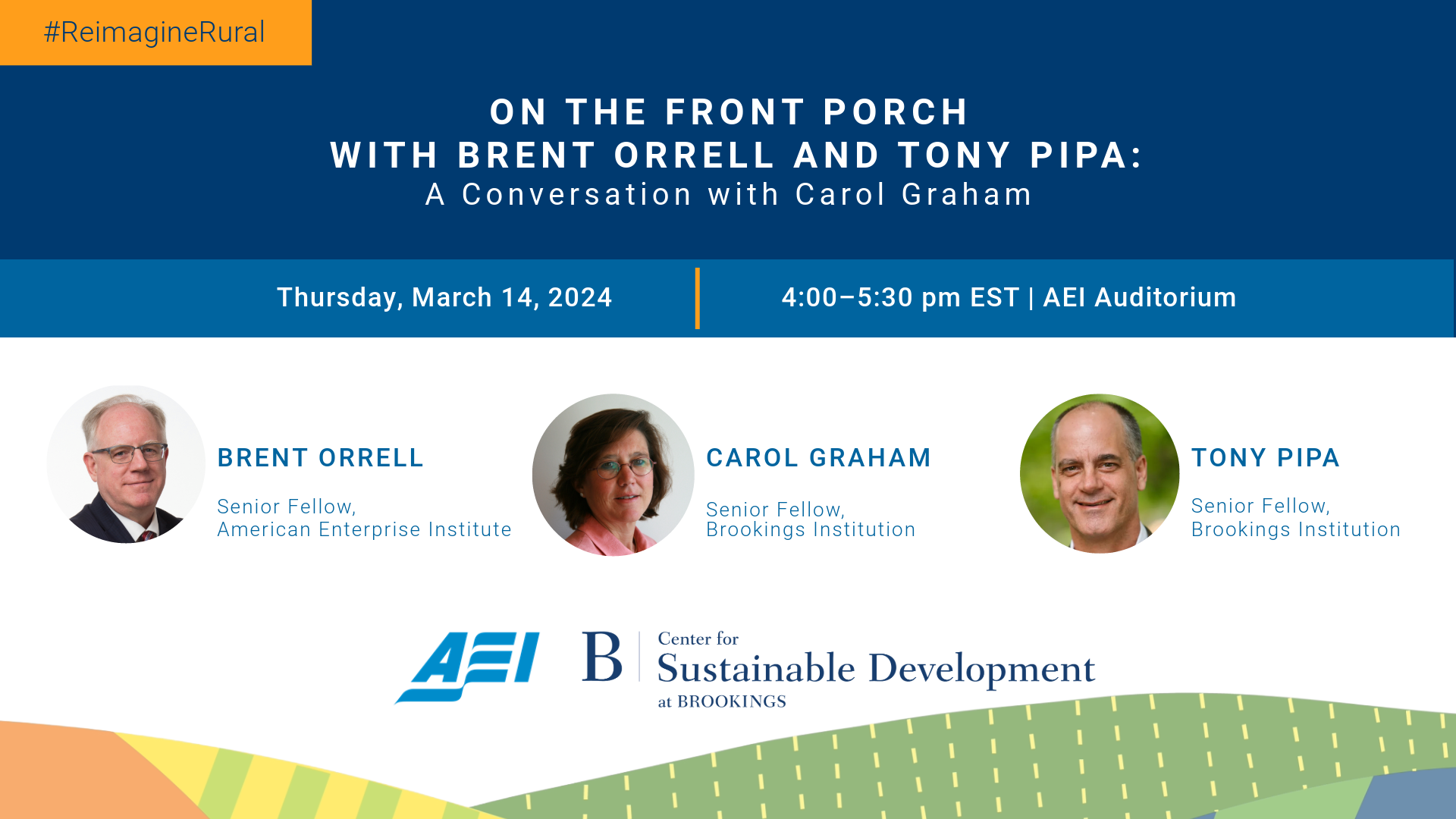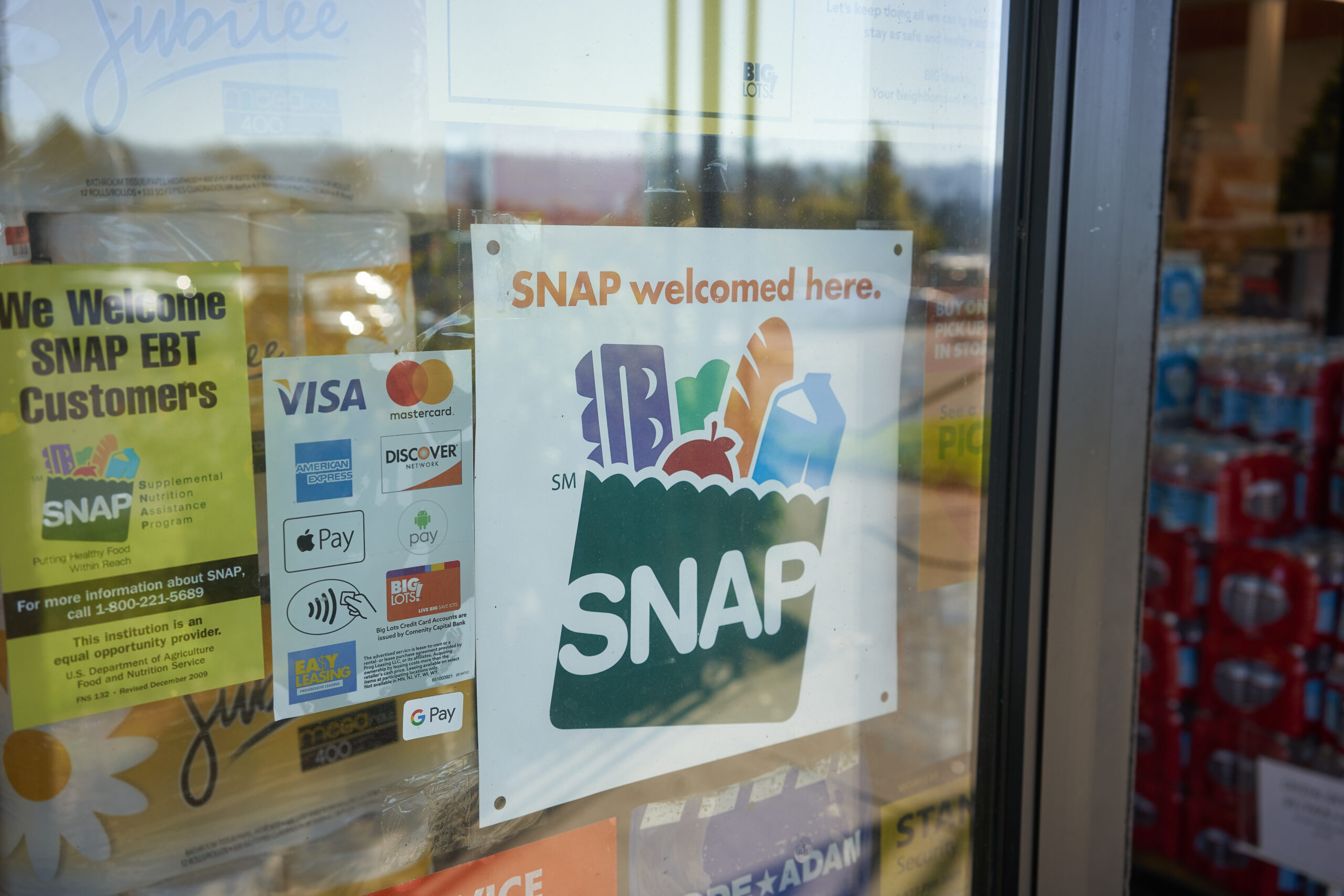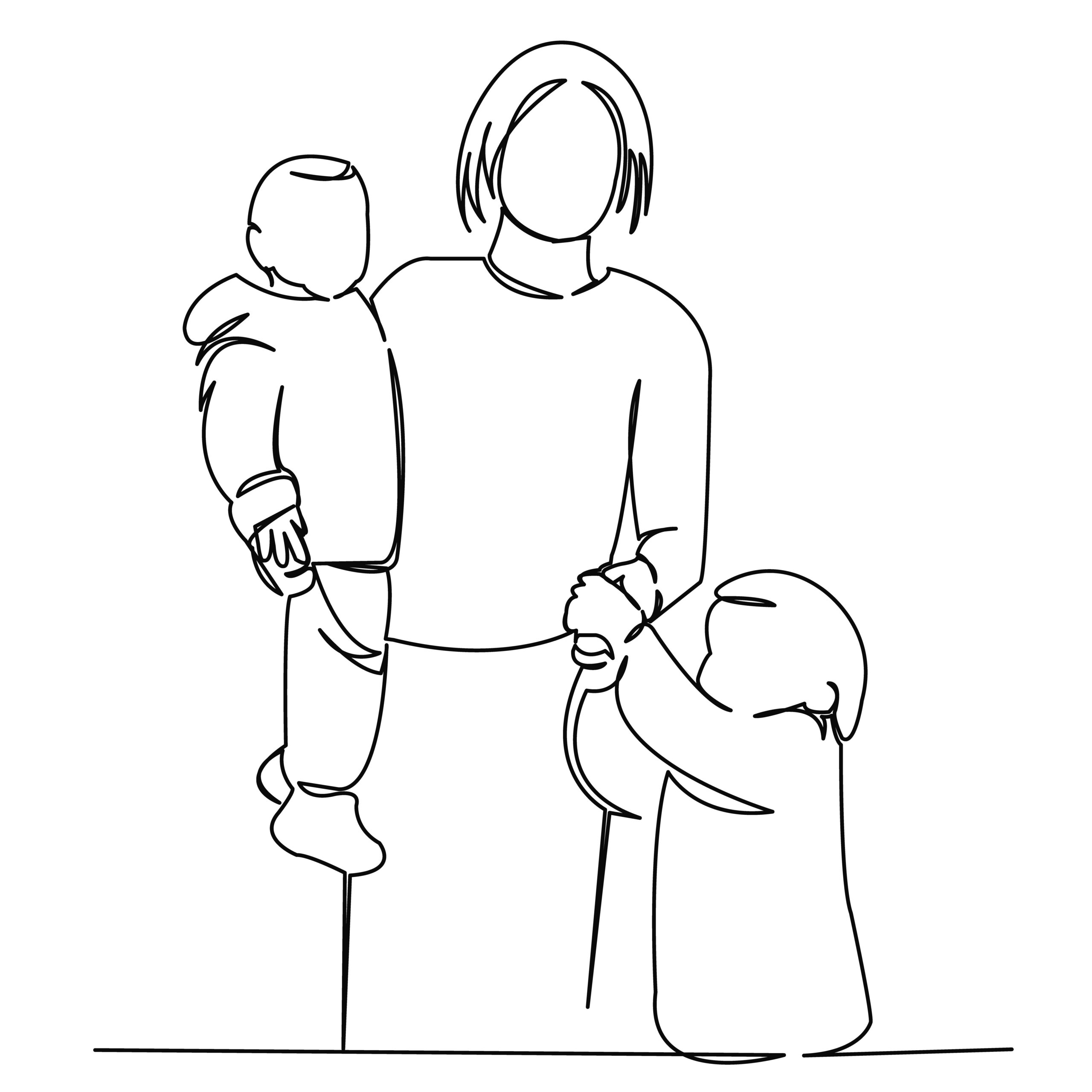
March 21, 2024
Sugary Beverage Consumption Among SNAP Recipients
The House Agriculture Committee recently failed to pass an appropriations bill that would have authorized a pilot program to test whether nutrition-based restrictions in the Supplemental Nutrition Assistance Program (SNAP) could improve health outcomes for low-income households. This is just the latest rejection by Washington policymakers of proposals designed to improve nutritional outcomes for SNAP…

March 14, 2024
On the Front Porch with Brent Orrell and Tony Pipa: A Conversation with Carol Graham
Event Summary On March 14, AEI’s Brent Orrell and the Brookings Institution’s Tony Pipa hosted Carol Graham, also of the Brookings Institution, to discuss her book, The Power of Hope: How the Science of Well-Being Can Save Us from Despair. This conversation was part of the “On the Front Porch with Brent Orrell and Tony Pipa” series hosted by AEI and the Brookings Institution. Mr. Orrell, Mr. Pipa, and Dr. Graham discussed her research on the important…

March 6, 2024
College or Trade School? How About Both?
For too long, our debates on post-secondary education have taken a binary form: either “college for everyone” or “learn a trade.” But in an era when career trajectories are no longer linear, and when technology is rapidly and unpredictably evolving, the ability to adapt and acquire new skills is essential. What we need instead is a…

February 29, 2024
The Age of Uncertainty—and Opportunity: Work in the Age of AI
Abstract The question of how artificial intelligence will affect jobs, skills, and the future of work is open-ended, and answers have been uncertain and contradictory. As AI has advanced, forecasts of labor market impacts have increasingly emphasized AI’s potential to automate tasks that require skills—including creativity, writing, and social and emotional learning—previously believed to be beyond the technology’s reach. In the face…

February 29, 2024
Addressing the False Claims from Industry Groups on Pilot Testing SNAP Restrictions
The House Agriculture Committee recently released an appropriations bill for fiscal year 2024 that sets aside $2 million to implement five pilot programs that would make certain unhealthy items ineligible for purchase with SNAP benefits. (For context, the $2 million represents roughly 0.000016% of the overall SNAP budget). The purpose of these pilot projects is…

February 7, 2024
Solving Benefit Cliffs in SNAP
At their best, safety net policies in the US reduce poverty by spurring upward mobility among the most disadvantaged. This requires identifying disadvantaged families and scaling benefits according to their need, all while trying to encourage employment and other mobility-inducing behaviors in the process. When safety net programs do not meet this charge, families can…

February 7, 2024
Child Tax Credit Bill Would Increase Marriage Penalties for Working Single Mothers
H.R. 7024, the Tax Relief for American Families and Workers Act of 2024, was passed by the House last week and is now moving to the Senate for consideration. The bill would change the Child Tax Credit (CTC) in several ways. The two most contentious changes are a one-year lookback for the refundable portion of…

February 2, 2024
Has Intergenerational Progress Stalled? Income Growth over Five Generations of Americans
Abstract We find that each of the past four generations of Americans was better off than the previous one, using a post-tax, post-transfer income measure constructed annually from 1963-2022 based on the Current Population Survey Annual Social and Economic Supplement. At age 36–40, Millennials had a real median household income that was 18 percent higher…

January 30, 2024
How Sensitive Are Single Mothers’ Work Decisions to a Change in Incentives? Correcting Misperceptions of the Evidence
Let’s start with a table. (With apologies to our mobile audience…) Evidence on Extensive Margin Employment Elasticities for Single Mothers Reported Revised Consistent w/ 0.75? Notes Reviews or Based on Reviews Corinth et al. (2021, rev 2022) 0.75 — p. 22; based on midpoint of McClelland and Mok (2012), p. 5 (below); unpublished…

January 29, 2024
Per-Child Benefit in Wyden-Smith Child Tax Credit Bill Would Discourage Full-Time Work for Families with Multiple Children
The Wyden-Smith proposed tax legislation would make four changes to the Child Tax Credit (CTC). First, it would increase the cap on the refundable portion of the CTC, eventually to the same amount as the maximum non-refundable CTC. Second, it would begin indexing the maximum non-refundable CTC with inflation. Third, it would apply a one-year lookback for…